This guide on How to Serve Eggs for Baby-Led Weaning includes how to introduce eggs to babies, features a variety of baby-friendly egg recipes and addresses common questions about introducing eggs, a common allergen.
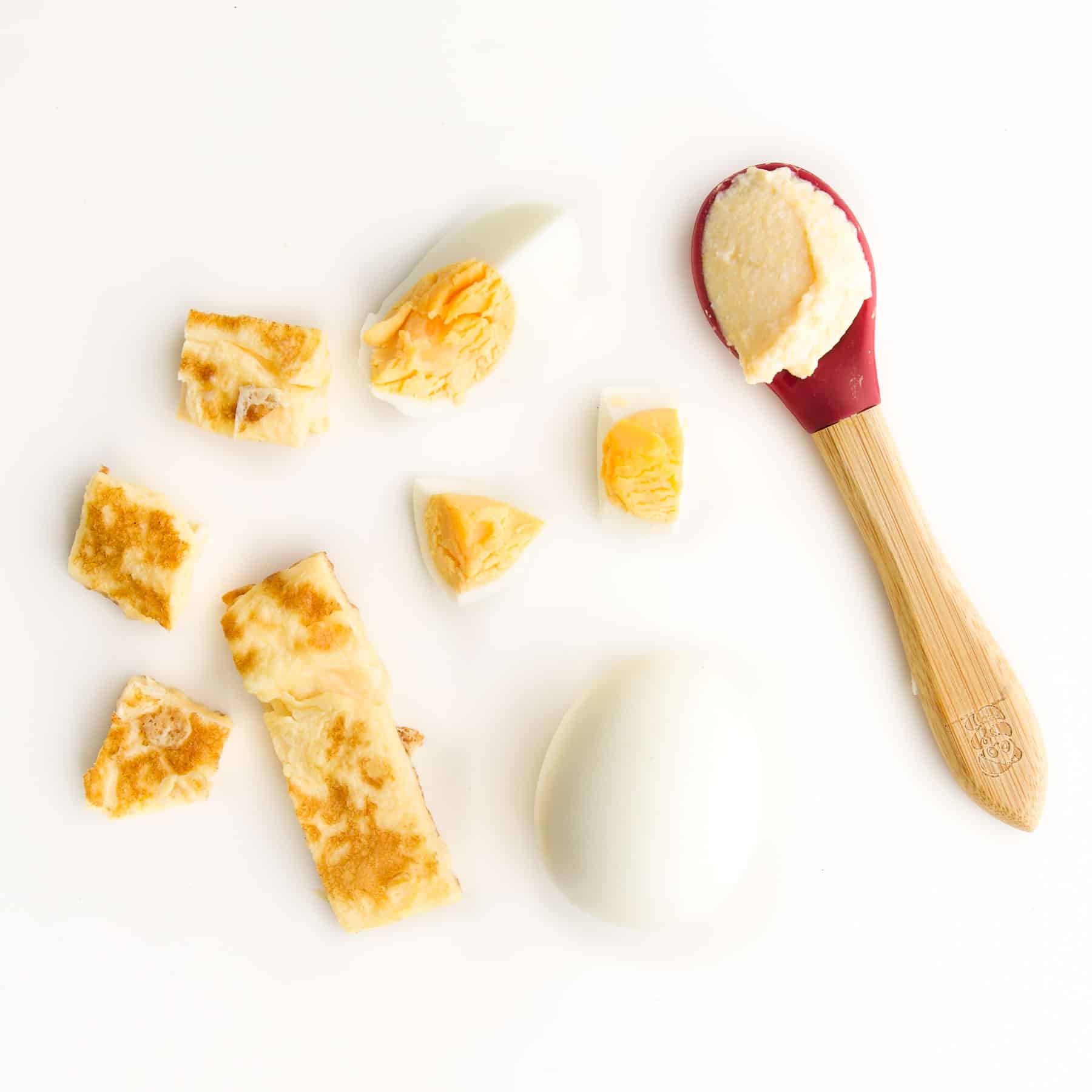
At Healthy Little Foodie, we hold a deep appreciation for eggs, considering them an excellent choice for both babies and the entire family. Their ease of preparation and remarkable versatility open doors to a wide range of delightful culinary experiences, making them a valuable addition to countless recipes. These qualities, along with their nutritional benefits, are why we consider them such a great first food for babies.
Jump to:
Baby Friendly Egg Recipes Video
Benefits of Eggs
When babies first start solid foods, they generally eat very little. Therefore, it is important that they are fed nutrient-rich food, such as egg.
Eggs are an excellent source of essential nutrients that babies need. These include iron, folate, essential amino acids, iodine, protein, and vitamin D, A, E and B12. Eggs also provide some of the highest quantities of choline of any food. Choline helps brain cells function, and it is important for overall brain development and activity.
When to Introduce Eggs
Guidance has changed in recent years and as a result, there is a lot of confusion around when it is best to first introduce eggs.
Current recommendations, from many professional bodies around the world (DGA, NHS, ASCIA), is to introduce well-cooked whole egg as soon as your baby is ready to start solids, usually around six months of age, but not before four months.
Egg and Allergies
Parents often have concerns when introducing eggs to their babies, as eggs are one of the most common allergy-causing foods for young children. (ASCIA).
Symptoms of an egg allergy range from mild reactions to severe allergic reactions (anaphylaxis). The most common symptoms are allergic skin reactions. Other symptoms include runny nose and itchy, watery eyes, cramps, nausea, or vomiting. (Better Health)
When introducing allergenic foods to your baby for the first time, it is advisable to focus on one common allergen at each meal (egg, dairy, peanut, dairy, tree nuts, soy, sesame, wheat, fish, and other seafood). This approach helps identify any specific food allergy should a reaction occur.
The good news is, as noted by ASCIA, is that most children with an egg allergy tend to outgrow it over time.
How to Cook and Serve Eggs to a Baby.
As eggs are a common food allergen you should start with small amounts of well-cooked egg and gradually increase the volume served. It is important to offer the entire egg, both egg yolks and egg whites.
One of the great things about eggs is that they can be served in so many different ways. Don't stick to serving your baby eggs cooked in just one way. Try a variety of different cooking methods so that your baby can get used to different textures and flavours.
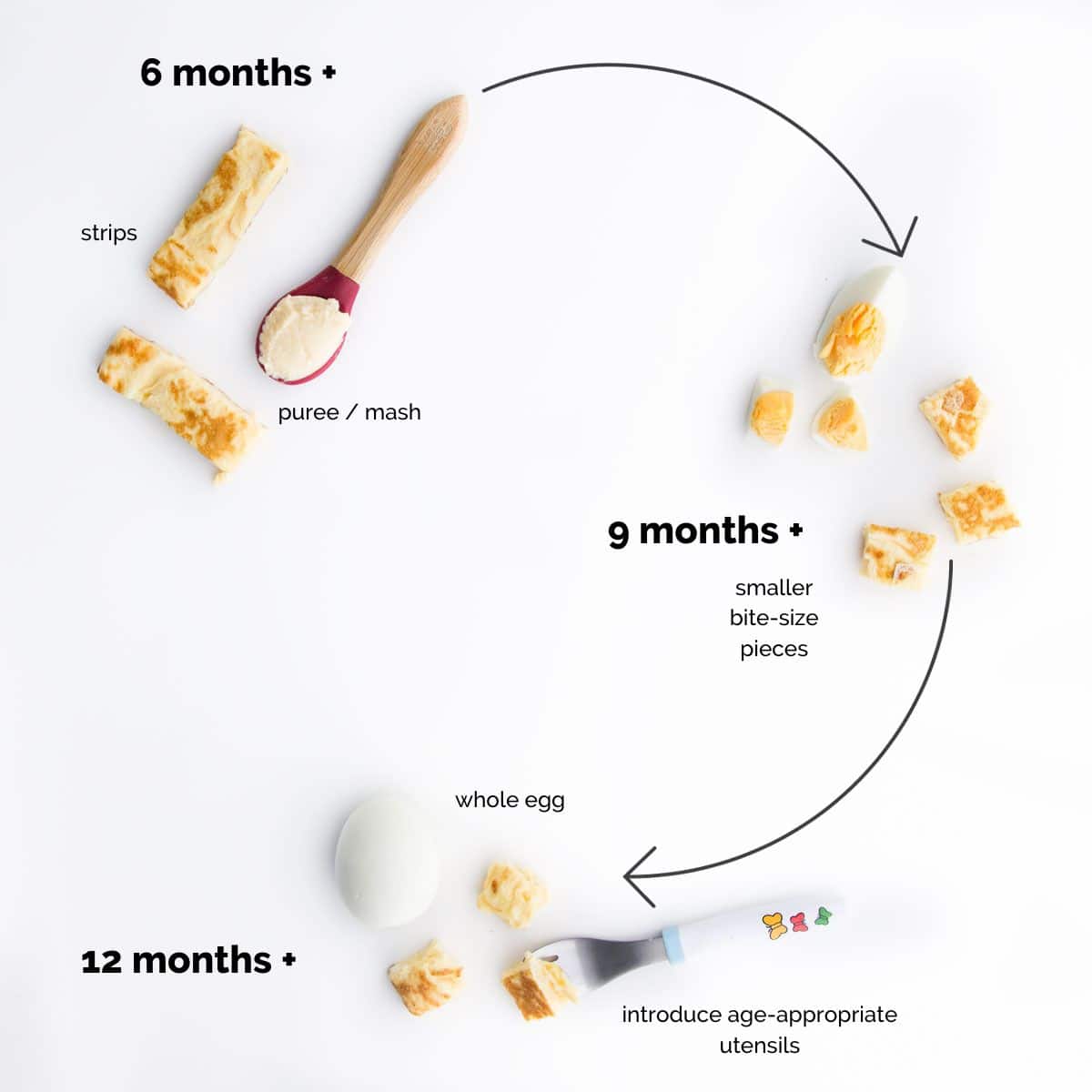
- 6 months +
You can serve eggs pureed, mashed, or as finger food. Try starting with pureed (or mashed) hard-boiled eggs, mixed with avocado or breast milk for a more creamy consistency, spoon feed or for baby led weaning offer a pre loaded spoon. Omelette strips are a fantastic finger food as are mini egg muffins and egg pancakes. See the recipe section below for ideas.
- 9 months +
As your baby reaches this stage of development, their pincer grasp is maturing, allowing them to handle small pieces of food more effectively. This presents a great opportunity to adapt their meals by cutting omelettes, scrambled eggs, or hard-boiled eggs, egg muffins or egg pancakes into smaller pieces.
- 12 months +
Introduced age-appropriate utensils. When your toddler is ready, you can introduce whole eggs. Be sure to provide a cup of water to help them swallow the yolk easily.
Egg Recipes for Babies
- Egg Puree/ Mash
This is an easy and great way to introduce eggs into your baby's diet. Simply hard boil an egg and mash together with a vegetable/fruit puree, baby milk or yoghurt. See the recipe card below for the full recipe.
This can be spoon-fed to the baby or offered to self-feeding babies on loaded spoons. Alternatively, spread the mixture on toast fingers.

- Scrambled Egg
Scrambled eggs are also a great option, they should always be fully cooked but you still want fluffy scrambled eggs. How to cook scrambled eggs for a baby.
Scrambled eggs can be spoon-fed or served in big "clumps" to make it easy for babies to pick up.
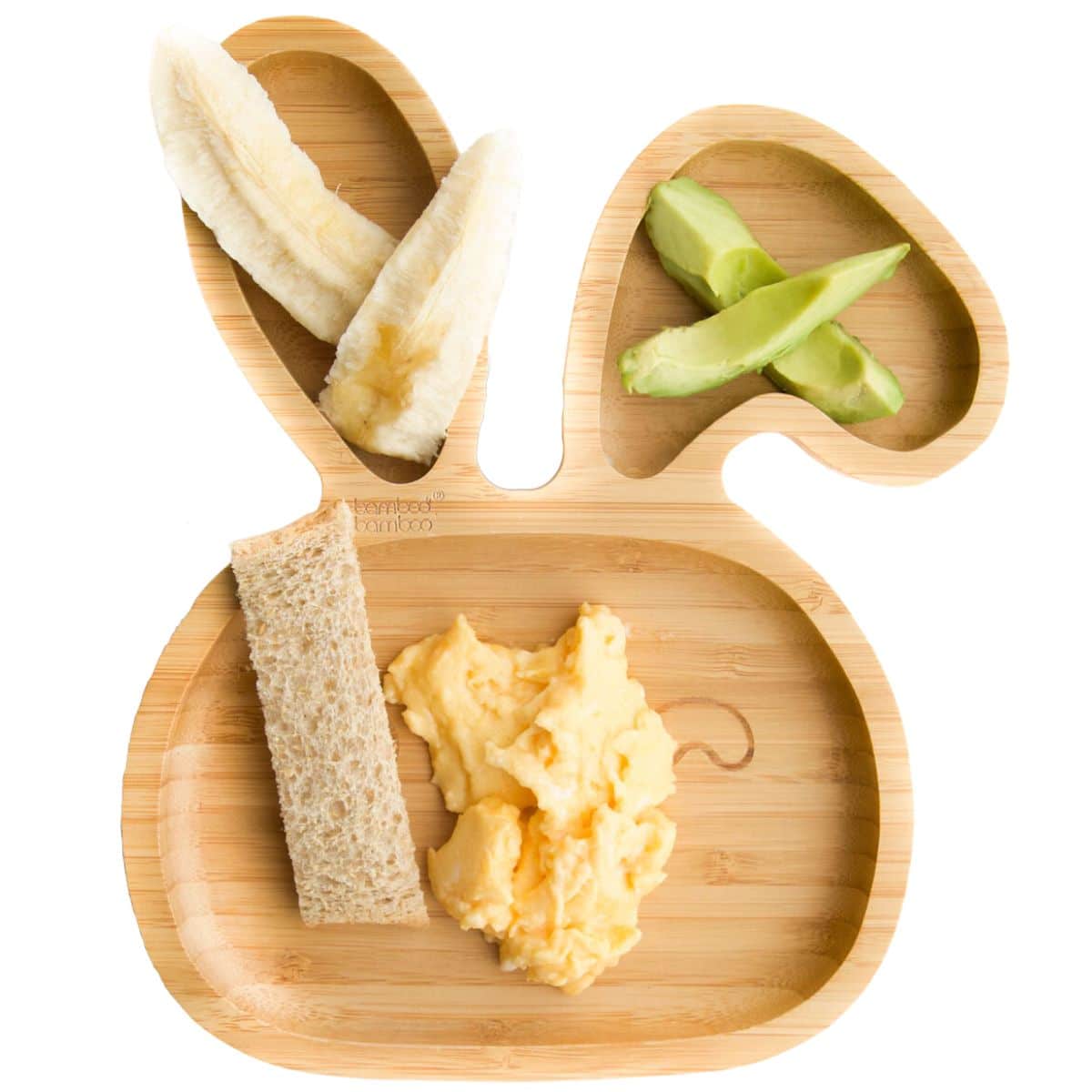
- Omelettes
Omelettes are great for adding flavour and vegetables to eggs. Chop vegetables very small and add them along with some herbs and/or cheese. Omelette fingers are great for little hands as they are easy to grasp and hold. Alternatively egg rolls are a great option, roll the omelette and chop it into bite-size pieces
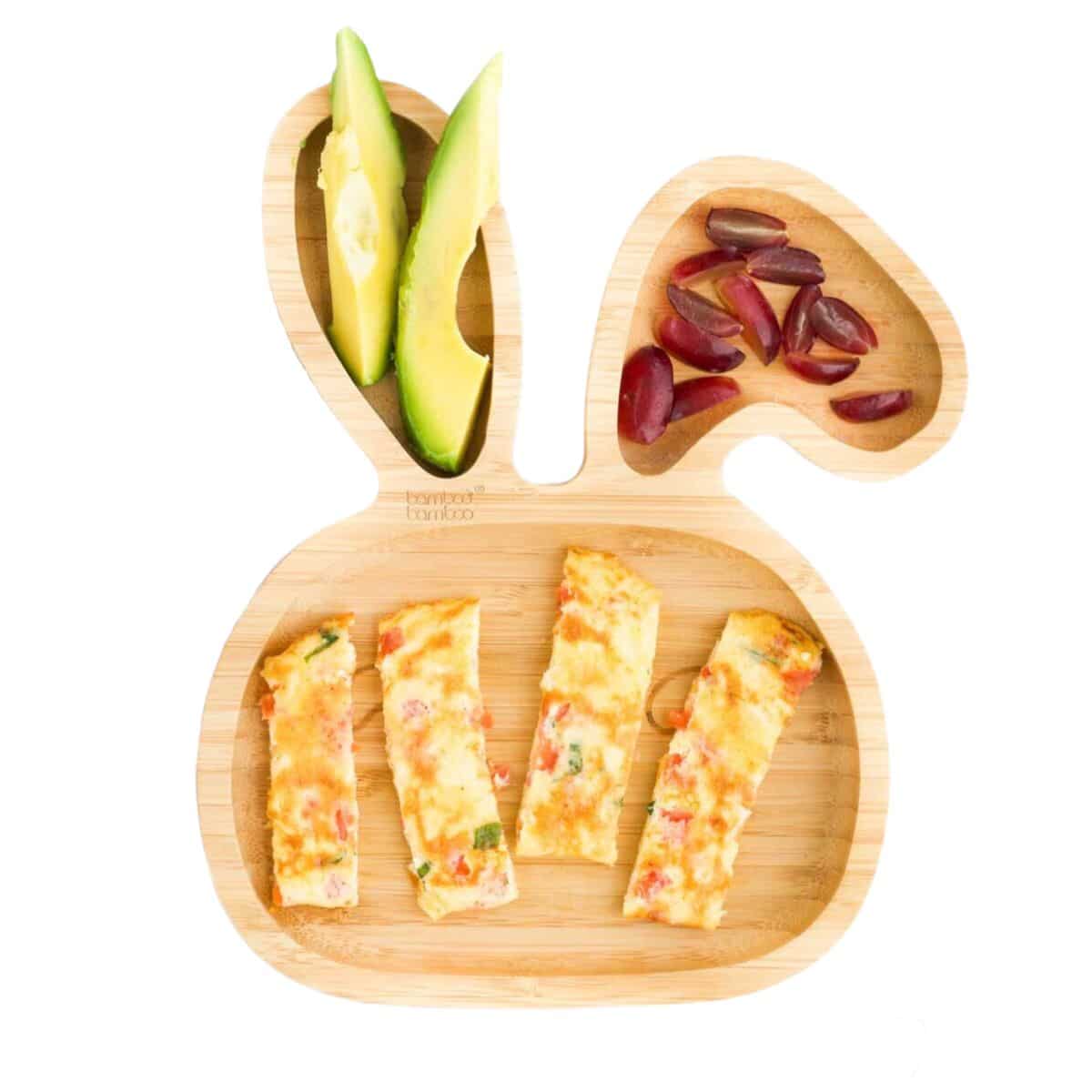
- Pancakes
Most pancakes have eggs in them but what makes these "pancakes" different is that egg is one of only two ingredients. Mixing egg with some banana, to make banana egg pancakes, or sweet potato puree to make sweet potato egg pancakes, is perfect for babies. Serve whole, in strips or bite-sized pieces depending on the age and stage of your baby.
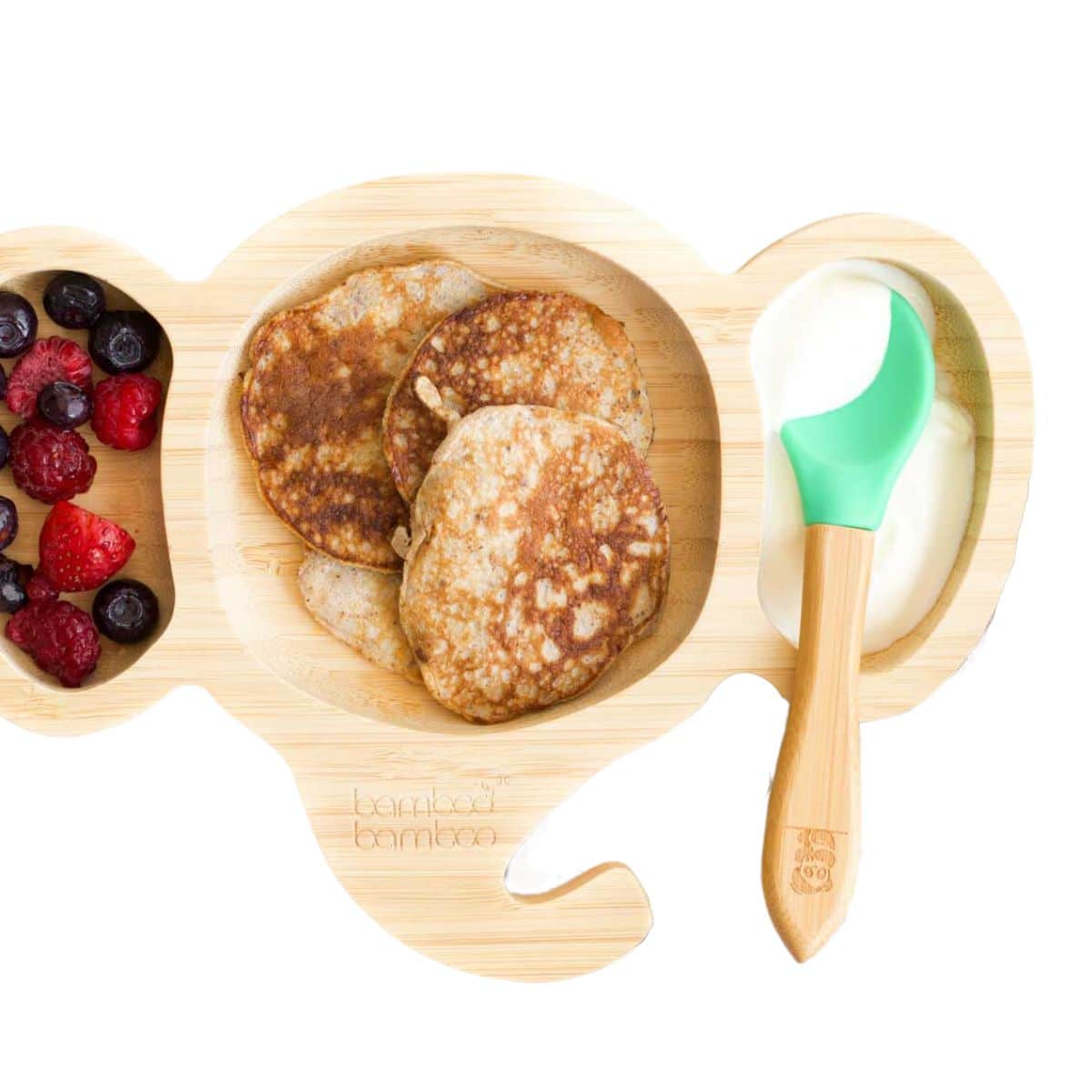
- Egg Muffins
Similar to the banana pancakes above, these banana egg muffins or "sweet omelette bites" are made with just egg and banana. Optional fruit (raspberries / blueberries) are added to the bottom before cooking.
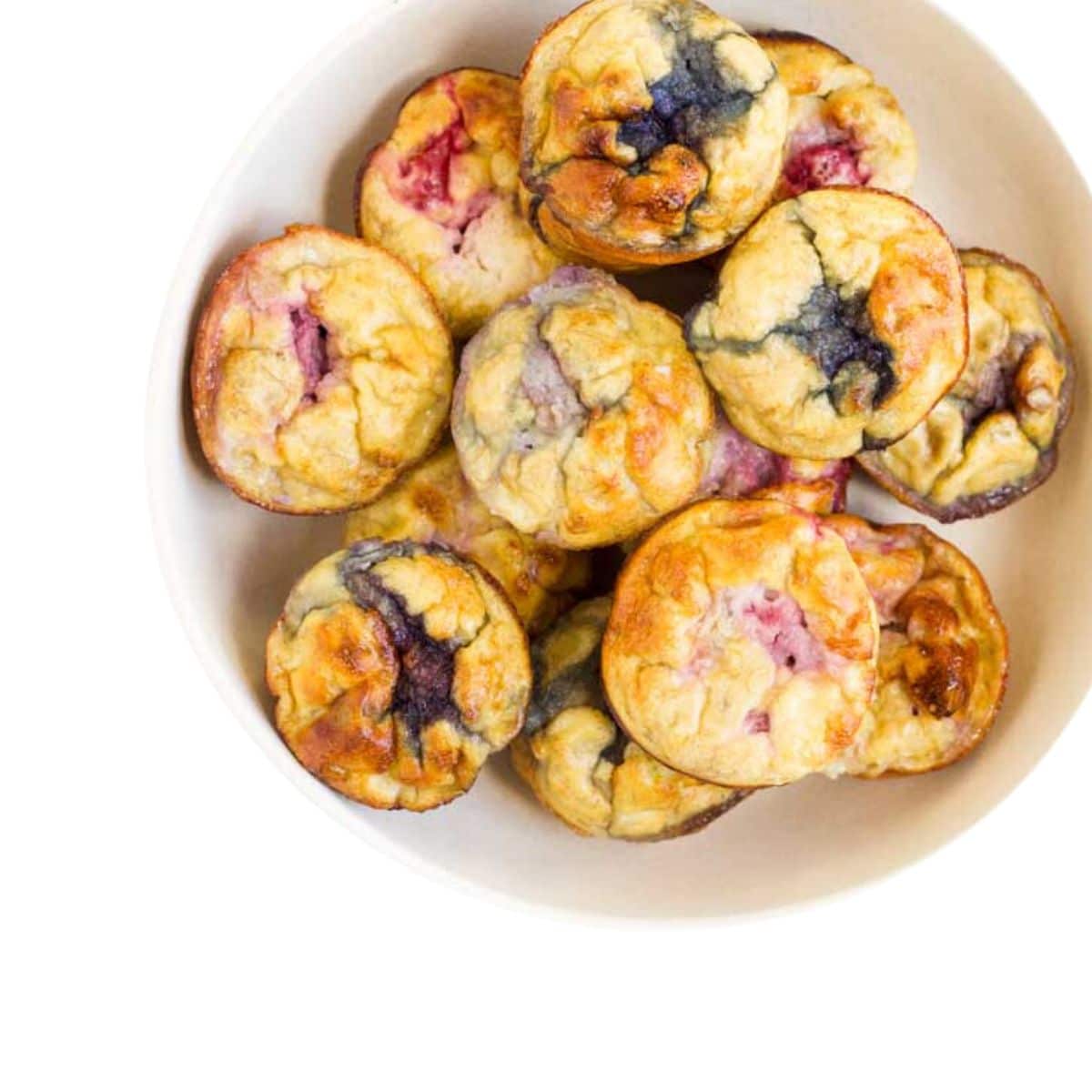
Other Frequently Asked Questions
Eggs taste great with a range of foods such as cheese or vegetables such as onion, capsicum, spinach, tomato, asparagus, mushrooms, leeks, and potato. Eggs are also great for introducing a range of herbs to your baby, such as basil, parsley, chives, tarragon & thyme.
Yes, add your cooked eggs / mashed egg purees to a covered container and refrigerate for up to two days.
More Feeding Guides for Baby Led Weaning
Looking for more healthy kid recipes?Sign up for my free recipe newsletter to get new family friendly recipes in your inbox each week! Find me sharing more kid-friendly inspiration on Pinterest and Instagram.

Egg Mash
Ingredients
- ½ Hard Boiled Egg
- 1 tablespoon Mashed Avocado See notes for alternatives
Instructions
- Add the egg and avocado to a small mixing bowl and mash together until the desired consistency is achieved.
Video
Recipe Notes
- How to cook hard-boiled eggs:
- The avocado needs to be ripe so it mashes easily.
- Alternatives to avocado: You can replace the avocado with any vegetable or fruit puree, yoghurt or a splash of baby milk.
- Scrambled Eggs
- Baby Omelette Fingers
- Omelette Rolls
- Banana Egg Pancakes
- Sweet Potato Egg Pancakes
- Fruity Egg Muffins
Nutritional facts
Disclaimer: This information is intended for general use only. It is not medical advice and is not intended to replace the personalised care and advice given to you by your health professional. I am not a health professional and I do not know your baby. You should always discuss any concerns or questions about the health and well-being of your baby with a healthcare professional. Please refer to my full disclaimer for more info.
References
- DGA, Scientific Report of the 2020 Dietary Guidelines Advisory Committee, <<https://www.dietaryguidelines.gov/2020-advisory-committee-report>>
- ASCIA, How to Introduce Solid Foods to Babies for Allergy Prevention - Frequently Asked Questions (FAQ), Accessed 22 April 2021 <<https://www.allergy.org.au/patients/allergy-prevention/ascia-how-to-introduce-solid-foods-to-babies>>
- NHS, Your Baby's First Solid Foods, Accessed 22 April 2021 <<https://www.nhs.uk/conditions/baby/weaning-and-feeding/babys-first-solid-foods/>>
- Better Health Channel, Victorian Government, Accessed 22 April 2021 <<https://www.betterhealth.vic.gov.au/health/conditionsandtreatments/egg-allergy>>
- ASCIA, Food Allergy, Accessed 22 April 2021, <<https://www.allergy.org.au/patients/food-allergy/food-allergy>>
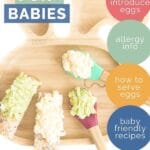
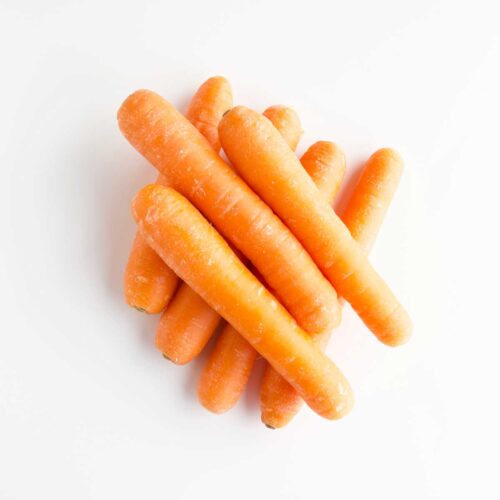
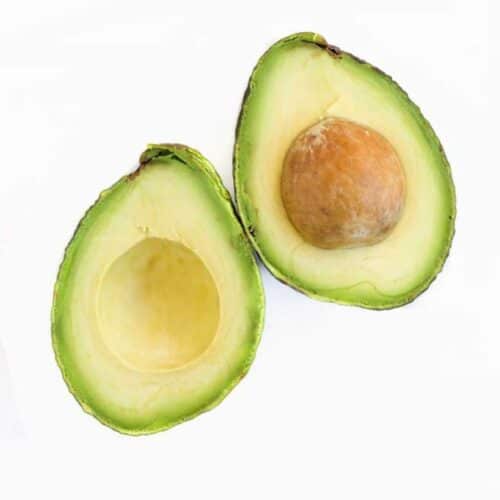
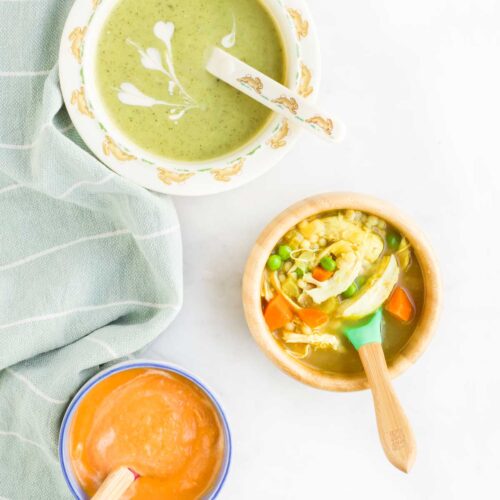
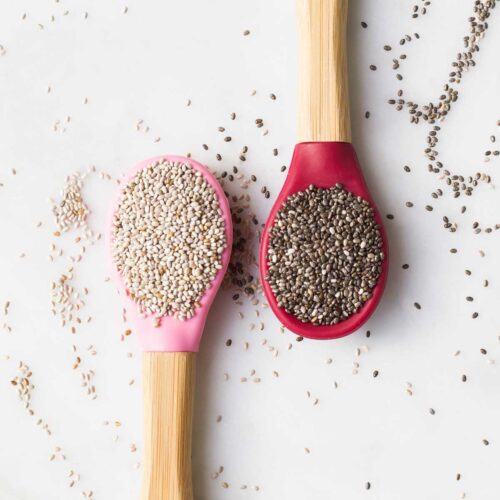
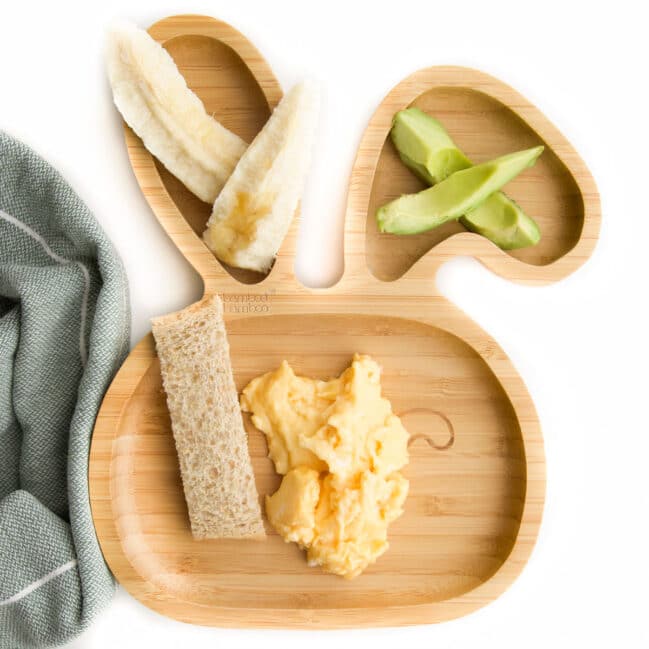
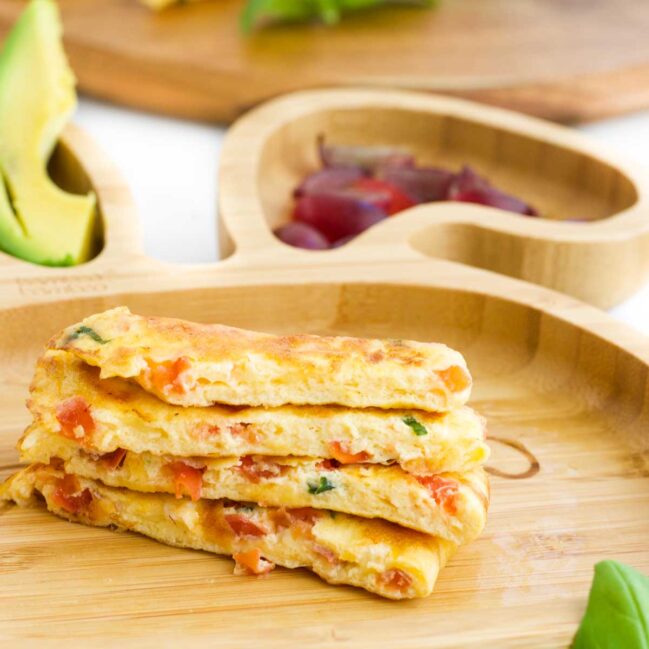
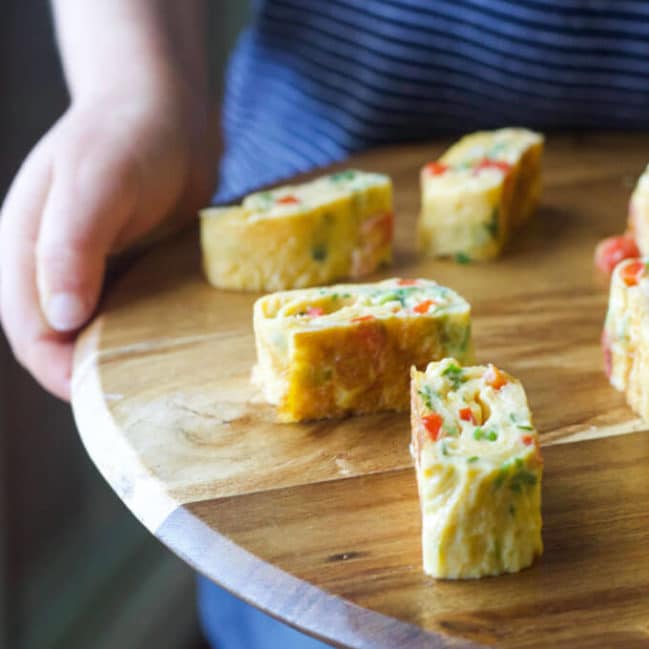
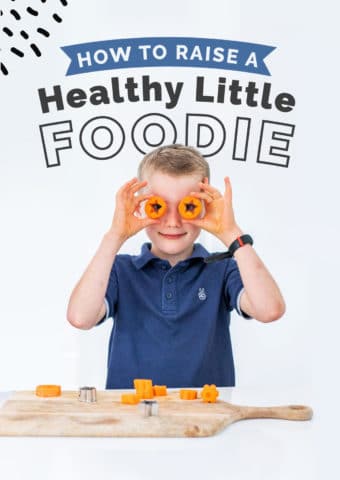
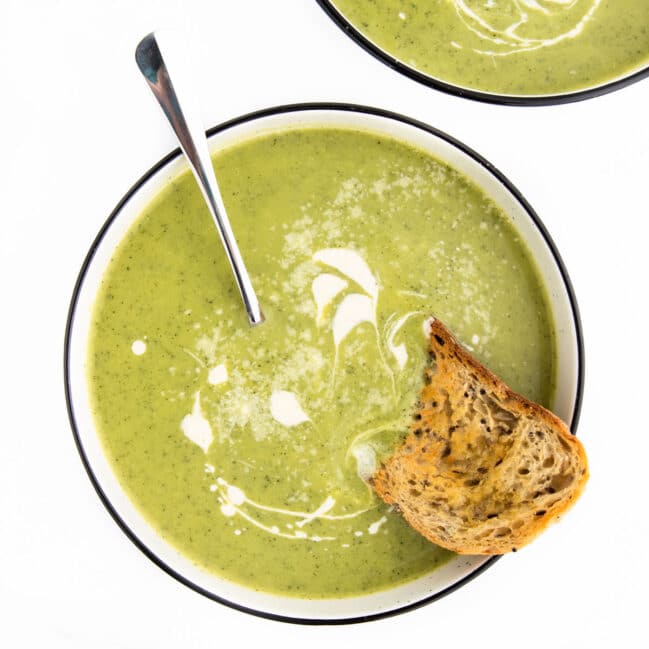
Amy says
I added sone full fat greek yoghurt
Hannah K says
Thank you for all the information. I made the egg and avocado mash and my little boy gobbled it up. Will try the omelette fingers next.
Amy says
Great, I hope he enjoys the omelette too 🙂